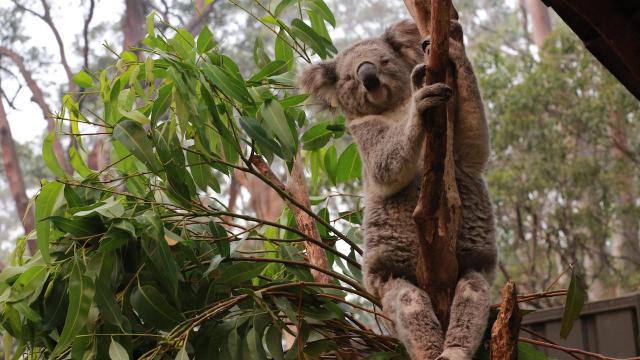Australia’s devastating bushfires have resulted in the global community coming together to offer support and financial aid. But not everyone has banded together for the greater good.
Some human garbage fires have been using this as an opportunity to swindle people out of their money by posing as a charity. We wish we didn’t have to write this, but this is what you should look out for when it comes to bushfire scams.
Scams have been occurring both online and in person. They have ranged from people posing as RFS members while doorknocking to the establishment of fake fundraising pages for families who had loved ones die.
According to cyber security firm Infotrust, hackers have even breached the systems of legitimate charity organisations to send fake emails to phish for cash.
These emails tend to say that the organisation’s bank has been closed due to the fires and suggests that money be transferred into an alternative bank account – that of the hackers.
Once these emails have been sent the scammers are deleting them from ‘sent items’ and setting up mailbox rules so legitimate employees can’t see them.
“Every day we are seeing new and more sophisticated phishing attacks aimed at key personnel within businesses, but this is the first time we’ve heard bushfire being used to help the scammer prove authenticity of the emails being sent,” said Infotrust CEO, Dane Meah in a statement.
“It’s human nature to help those in need, but this can be easily exploited so it’s important that organisations implement tight controls ” be that process or technology ” to ensure human goodwill doesn’t unwittingly result in loss of money or sensitive data.”
The ACCC has also warned Australians about the increase in scams in the wake of the bushfires.
“Scammers are targeting people by pretending to represent legitimate or well-known charities or fundraising organisations, or by setting up their own fake fundraising pages on social media and fundraising platforms,” said the ACCC in a statement.
[referenced url=”https://gizmodo.com.au/2020/01/how-to-donate-bush-fire/” thumb=”https://gizmodo.com.au/wp-content/uploads/2015/03/Koala-410×231.jpg” title=”How To Help Australian Bush Fire Victims (Including Wildlife)” excerpt=”Large parts of eastern Australia are now in catastrophic fire danger. With over 4 million hectares destroyed you may be wondering how you can help, so here’s some of the best charities and organisations.”]
Tips for spotting a bushfire charity scam
Scammers have been presenting themselves in a number of ways during the bushfire catastrophe. These include:
- Calls text impersonating businesses or government organisations seeking “˜donations’ that they will be sending on to well-known charities
- Impersonation of a high level employee in a business claiming the business will be making a donation to the bushfires to the scammer’s account
- Individuals on social media and crowdfunding sites claiming to be fundraising where it is dubious that the money raised will actually be donated
- Impersonation of real charities via calls and text and even in person through door to door charity appeals
- Individuals claiming to be relatives of those affected by the bushfires seeking donations
If you’re worried about being scammed, here’s some advice for individuals and businesses from Scamwatch and the ACCC:
- Do not donate via fundraising pages on platforms that do not verify the legitimacy of the fundraiser or that do not guarantee your money will be returned if the page is determined to be fraudulent
- Be careful about crowdfunding requests as these may be fake and also come from scammers. Check the terms and conditions of funding platforms and ensure you are dealing with official organisations. If you are unsure make your donation to an established charity instead
- Do your research and donate directly to registered charities. You can look up registered charities on the Australian Charities and Not-for-profit Commissions website.
- Ask to see the identification of door knockers
- Look out for any odd requests, names, email addresses or links in emails from alleged charity organisations
If you’re the victim of a fake charity scam, report it to Scamwatch immediately. The ACCC has also set up a dedicated number for bushfire related scams – 1300 795 995. You should also contact your bank and report the transaction.
